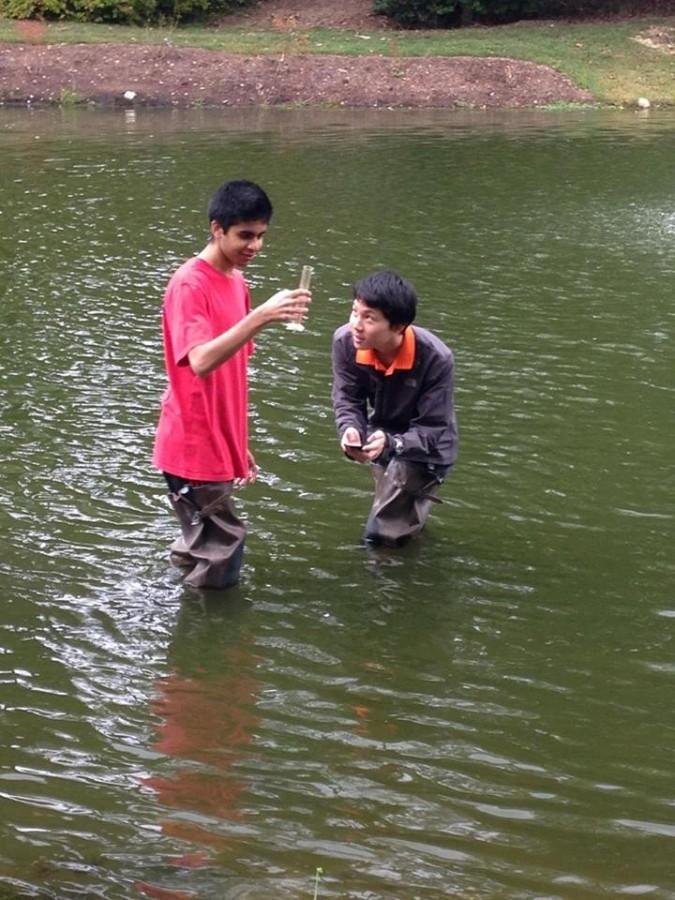Freshman IBET field trips begin for research

Students at Green Springs test water turbidity in a pond for their IBET research project.
October 31, 2014
This November marked the start of the freshman Integrated Biology English and Technology (IBET) field trips for the ninth grade yearlong research projects. Now, students have been traveling to areas, such as Mason Neck and Holmes Run, to conduct their research. These in-depth studies range from research on salamanders to deer populations and pellets to water quality tests, and later in the year, the students will be able to expand on their gathered data and then create their own project questions to present at tjSTAR.
“I think it’s a good start as a freshman because I know in TJ you get to do a lot of research papers in IBET,” freshman Amitesh Kotwal, who is currently in the salamander study IBET group, said. “It’s a really good foundation for building your research skills and for writing papers.”
The students seem to not only enjoy the field trips for each project, but also immerse themselves in their IBET communities. They have said that they like having the same classmates in their Biology, English, and Design and Tech classes even though there also seems to be mixed feelings towards each of the IBET projects themselves. While some are enjoying the main topic of their research papers, others do not feel the same. Nonetheless, a majority of the students believe this to be a captivating, learning experience.
“I think the IBET projects help us learn how to work together, even at the worst of times,” freshman Gabby Baranta, who is testing water quality in her IBET, said. “If you don’t get along with your group well, you’re forced to work with them, so you can bring the best out of each other.”
Not only do the students realize the importance these projects, but also the IBET teachers are also extremely excited to help the freshmen excel in this yearlong endeavor. They are glad to be able to give their students a chance to conduct real field research, and hope to use these studies to prepare them for the future.
“The trips are authenticating what you would do as science research,” Design and Technology Teacher John Lafever said. “They happen to be a field research component, which is one of the variations of research that you can do. So it gives students a variation of different kind of research projects that could happen as a job they would have or something they may do at a collegiate level.”





